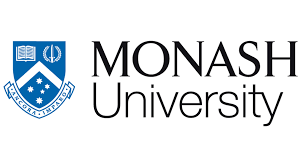Monash University: Research helping to amplify Ukrainian refugee voices
The stories of Ukrainian refugees fleeing impacted areas are being highlighted with the help of video production toolkits developed by Monash University researchers in partnership with the International Federation of Red Cross and Red Crescent Societies (IFRC).
The Indaba project, created by researchers from the Faculty of Information Technology’s (IT) Action Lab in collaboration with the IFRC, provides simple guided tools to shoot, edit and publish videos so that remote communities can collaboratively tell their stories, create historical archives of specific issues and report progress on ongoing aid programs with minimal professional support.
Lead researcher, Dr Tom Bartindale, said the Indaba toolkit has been made available as open-source, creative commons software. It has been operational and in use since February 2020.
The toolkit gives step-by-step instructions to produce videos that comprehensively narrates the lived experience and feedback from people participating in IFRC aid programs.
“It starts with familiarising the local community with the Indaba process, ideation, story building through visual aids, simple and detailed instructions on capturing and creating videos, processes for community feedback and guidance on how to use the produced content,” Dr Bartindale said.
“The guides are provided in four different languages, can be implemented in the absence of internet connectivity and are designed to be deployed without technical assistance so they can be used in remote locations without facilitators.
“We are glad that Indaba has been readily available for use by IFRC and the Slovak Red Cross, to record and broadcast the stories of displaced persons crossing the border from Ukraine even in dire situations where there is a lack of good connectivity.”
The toolkit has previously been used to record participatory videos from local communities working with IFRC for various aid programs including for a water, sanitation and hygiene promotion (WASH) project in Indonesia, an HIV/AIDS project in Namibia and a School Children Training project in a deaf school in Egypt.
Indaba was initially conceived as a tool for timely and reliable monitoring and evaluation of the IFRC’s National Societies across the world. Videos captured through these toolkits have made it possible for the IFRC to identify trends, strengths and areas for improvement at a national, regional and global level.
“It is invaluable for us to have a resource like Indaba that can help the world understand better the circumstances of displaced people who are crossing the Ukrainian border, while they are trying to overcome and thrive in very difficult situations,” Monitoring and Evaluation Coordinator at the IFRC, Miki Tsukamoto, said.
Recent iterations of the toolkit have provided instructions and guidance on socially distanced video production for deployment in areas where COVID-19 restrictions are in place. The researchers are working on adding new built-in language transcription tools to the Indaba toolkit.
Indaba is a key initiative from Monash University’s Action Lab, a cross-disciplinary research group whose mission is to undertake impactful digital innovation in partnership with communities and NGOs.

